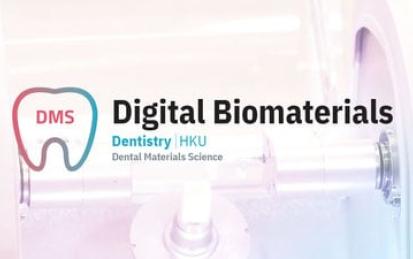

Our Courses

Material Processing
Have you ever wondered why ceramics are hard and brittle while metals tend to be ductile? Why some materials conduct heat or electricity while others are insulators? Why adding just a small amount of carbon to iron results in an alloy that is so much stronger than the base metal?
-
Course by

-
 Self Paced
Self Paced
-
 12 hours
12 hours
-
 English
English

Fundamentals of Materials Science
Materials are the physical foundations for the development of science and technology. The human civilizations are historically designated by the evolution of materials, such as the Stone Age, the Bronze Age and the Iron Age. Nowadays, materials science and technology support most of the industrial sectors, including aerospace, telecommunications, transportation, architecture, infrastructure and so on. Fundamentals of Materials Science is a core module for undergraduates majored in materials science and engineering. This English course will be taught by Prof. Guo Qiang, Prof. Reddy and Prof.
-
Course by

-
 Self Paced
Self Paced
-
 20 hours
20 hours
-
 English
English

Nanotechnology and Nanosensors, Part 2
Learn about novel sensing tools that make use of nanotechnology to screen, detect and monitor various events in personal or professional life. Together, we will lay the groundwork for infinite innovative applications, starting from diagnosis and treatments of diseases, continuing with quality control of goods and environmental aspects, and ending with monitoring security issues. _ _ _ _ _ _ _ _ _ _ _ _ _ _ _ _ _ _ _ _ _ Nanotechnology and nanosensors are broad, interdisciplinary areas that encompass (bio)chemistry, physics, biology, materials science, electrical engineering and more.
-
Course by

-
 Self Paced
Self Paced
-
 17 hours
17 hours
-
 English
English

Materials Data Sciences and Informatics
This course aims to provide a succinct overview of the emerging discipline of Materials Informatics at the intersection of materials science, computational science, and information science. Attention is drawn to specific opportunities afforded by this new field in accelerating materials development and deployment efforts. A particular emphasis is placed on materials exhibiting hierarchical internal structures spanning multiple length/structure scales and the impediments involved in establishing invertible process-structure-property (PSP) linkages for these materials.
-
Course by

-
 Self Paced
Self Paced
-
 9 hours
9 hours
-
 English
English

Protecting the World: Introducing Corrosion Science and Engineering
If you have ever encountered rusty car bodies, leaking pipes, tarnished silverware or the green patina of a copper roof then you have experienced corrosion in action. This course, from the Corrosion@Manchester team in collaboration with AkzoNobel, will teach you why metals corrode, what the environmental consequences are, how much corrosion costs and how corrosion can be controlled. It is designed for students, householders, teachers, professionals and anyone in-between. The aim of the course is to introduce the complex world of corrosion and corrosion control.
-
Course by

-
 Self Paced
Self Paced
-
 12 hours
12 hours
-
 English
English

Nanotechnology and Nanosensors, Part1
Nanotechnology and nanosensors are broad, interdisciplinary areas that encompass (bio)chemistry, physics, biology, materials science, electrical engineering and more. The present course will provide a survey on some of the fundamental principles behind nanotechnology and nanomaterials and their vital role in novel sensing properties and applications. The course will discuss interesting interdisciplinary scientific and engineering knowledge at the nanoscale to understand fundamental physical differences at the nanosensors.
-
Course by

-
 Self Paced
Self Paced
-
 12 hours
12 hours
-
 English
English

Emergent Phenomena in Science and Everyday Life
Before the advent of quantum mechanics in the early 20th century, most scientists believed that it should be possible to predict the behavior of any object in the universe simply by understanding the behavior of its constituent parts. For instance, if one could write down the equations of motion for every atom in a system, it should be possible to solve those equations (with the aid of a sufficiently large computing device) and make accurate predictions about that system’s future. However, there are some systems that defy this notion.
-
Course by

-
 Self Paced
Self Paced
-
 12 hours
12 hours
-
 English
English

Material Behavior
Have you ever wondered why ceramics are hard and brittle while metals tend to be ductile? Why some materials conduct heat or electricity while others are insulators? Why adding just a small amount of carbon to iron results in an alloy that is so much stronger than the base metal?
-
Course by

-
 Self Paced
Self Paced
-
 25 hours
25 hours
-
 English
English

Introduction to Materials Science
Periods of our civilization have names associated with materials – stone age, bronze age, iron age and the silicon age. Materials impact all aspects of your daily life and will continue to do so in the future. The more we understand materials, the more we imagine the future with fantastic devices and advancements enabled by materials. This initial specialization introduces a limited number of material science and engineering concepts. The topic presentations are at the concept level without being mired in heavy mathematics.
-
Course by

-
 Self Paced
Self Paced
-
 29 hours
29 hours
-
 English
English

Electrodynamics: Electric and Magnetic Fields
This course is a continuation of Electrodynamics: An Introduction and Electrodynamics: Analysis of Electric Fields. Here, we will introduce magnetostatics and relate it to the material we learned previously. In addition, we will cover the basics of the electromotive force and how it can be used to build different devices.
-
Course by

-
 Self Paced
Self Paced
-
 12 hours
12 hours
-
 English
English

Digital Biomaterials
Learn and discover the special, exciting and new materials and technologies in dentistry to make a difference in tomorrow’s oral health care development. It is Digital Biomaterials by HKU Dental Materials Science!
-
Course by

-
 Self Paced
Self Paced
-
 English
English

Materials Science: 10 Things Every Engineer Should Know
We explore “10 things” that range from the menu of materials available to engineers in their profession to the many mechanical and electrical properties of materials important to their use in various engineering fields.
-
Course by

-
 Self Paced
Self Paced
-
 9 hours
9 hours
-
 English
English

Electrodynamics: An Introduction
The depth and breadth of electromagnetism, the foundation for many fields including materials science, electrical engineering, and physical chemistry, requires a long, steep, and steady learning curve. This course aims to bridge the gap between the fundamental principles taught in electromagnetism and its practical application to specific fields such as materials, physics, and chemistry related to energy storage and harvesting.
-
Course by

-
 Self Paced
Self Paced
-
 13 hours
13 hours
-
 English
English

Electrodynamics: In-depth Solutions for Maxwell’s Equations
This course is the fourth course in the Electrodynamics series, and is directly proceeded by Electrodynamics: Electric and Magnetic Fields. Previously, we have learned about visualization of fields and solutions which were not time dependent. Here, we will return to Maxwell's Equations and use them to produce wave equations which can be used to analyze complex systems, such as oscillating dipoles.
-
Course by

-
 Self Paced
Self Paced
-
 English
English

Electrodynamics: Analysis of Electric Fields
This course is a continuation of Electrodynamics: An Introduction. Here, we will cover different methods of calculating an electric field. In addition, we will introduce polarization, dielectrics, and how electric fields create dipoles.
-
Course by

-
 Self Paced
Self Paced
-
 11 hours
11 hours
-
 English
English

Materials Science for Advanced Technological Applications
This specialization extends upon the initial introduction specialization, and like the other specialization, it introduces a limited number of new materials science and engineering concepts. Presentations are at the concept level without being marred in heavy mathematics. Topics in this specialization topic include strengthening of metal, polymers, ceramic materials, and composite. Some of the position titles that may benefit from this course include Materials Engineer, Chemical Engineer, Electrical Engineer, Aerospace Engineer, Materials Quality Control.
-
Course by

-
 Self Paced
Self Paced
-
 English
English

Electrodynamics
If you want to apply electrodynamics to your materials research project, this Specialization will help you do so. Electromagnetic force is one of the fundamental forces that hold atoms and molecules together, which are the building blocks of any materials.In four courses, you will learn the foundations of electrodynamics starting from the nature of electrical force up to the level of in-depth solutions of Maxwell equations. We will walk you through vector calculus, concepts of field, flux and circulation, electrostatics, and magnetostatics as well as electrodynamics.
-
Course by

-
 Self Paced
Self Paced
-
 English
English

Materials Science for Technological Application
This Specialization will provide you with an introductory knowledge and understanding of key concepts in Materials Science. Periods of our civilization have names associated with materials – stone age, bronze age, iron age, and the silicon age. Materials impact all aspects of your daily life and will continue to do so in the future. The more we understand materials, the more we imagine the future with fantastic devices and advancements enabled by materials. This initial specialization introduces a limited number of material science and engineering concepts.
-
Course by

-
 Self Paced
Self Paced
-
 English
English

Transmission electron microscopy for materials science
Learn about the fundamentals of transmission electron microscopy in materials sciences: you will be able to understand papers where TEM has been used and have the necessary theoretical basis for taking a practical training on the TEM. This course provides a comprehensive introduction to transmission electron microscopy (TEM) in the field of materials science. For an instrument operated by a single user, modern TEM provides an analytical platform with unsurpassed versatility, giving access to structural and chemical information from the micrometer to the sub-angstrom scale.
-
Course by

-
 Self Paced
Self Paced
-
 46 hours
46 hours
-
 English
English

Biomaterials and Your Health
Are you interested in learning and discovering biomaterials, nanotechnologies and standardisation in dentistry? Do you want to make a difference in tomorrow’s oral health care development? Join Biomaterials and Your Health developed by HKU Dental Materials Science!
-
Course by

-
 Self Paced
Self Paced
-
 English
English



